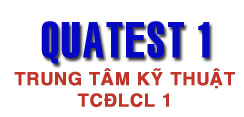Coordination meeting on smart manufacturing of APO’ member economies
Post date: Friday, Nov 15, 2019 | 17:19 - View count: 1571
From 12-14 November, 2019 in Taipei, Taiwan (China), the Asia Productivity Organization and Taiwan Productivity Center have coordinated to hold the coordination meeting of the project of researching and assessing the status and need for smart manufacturing of APO member economies.
The project was implemented within the program of the APO center of Excellence for Smart Manufacturing. Attending the meeting, there were Chief Expert, Professor Chen-Fu Chien, Tsing from Hua National University and 6 experts from 6 member economies including: Umashankar Prasad (India), Abdullah Sanusi (Indonesia). ), Franklin D. Quiachon (Philippines), Dr. Anan Mungwattana (Thailand) and Dr. Ha Minh Hiep (Vietnam). In addition, Mr. David Sehyeon Baek, Head of Research & Planning Department, APO Secretariat also attended the meeting as research coordinator.

Delegates from APO’s member economies
At the meeting, experts have presented specific analyzes of the essentials for their country to get maximum benefits from the transition to smart manufacturing. From these analyzes, it is shown that the transition to smart manufacturing requires a phased approach. Therefore, experts will identify the needs of the 6 member economies and provide a step-by-step action plan and recommendations for each economy. In-depth studies will also be conducted in each of these economies to demonstrate the specific processes that have been applied. Based on the research results and recommendations, subsequent activities will be carried out including raising awareness of smart manufacturing transformation methods appropriate to the context of each economy.
At the end of the coordination meeting, Dr, Eugene Y.Lin- Head of APO’s corporation department of CPC commented: “Through this research, the CPC as well as the APO Center of Excellence for Smart Manufacturing can plan practical project to assist member economies to transit from traditional manufacturing to smart manufacturing through factory automation, applying smart factory technologies or a combination of both way”.




















